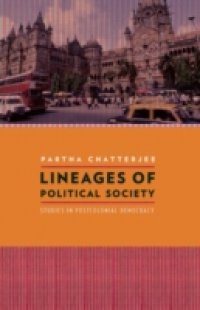Partha Chatterjee, a pioneering theorist, is known for his wide disciplinary range, incorporating the concerns of South Asian studies, postcolonialism, the social sciences, and the humanities with remarkable dexterity. His versatility made his early work, Politics of the Governed, a widespread hit, and it continues to draw audiences in an era of genre-defying, globalized scholarship.Building on his theory of "political society," first developed in his Politics of the Governed, and reinforcing its salience to contemporary political debate, Chatterjee broadly critiques the past three hundred years of western political theoryincluding postcolonial studies, comparative history, and our current understanding of contemporary politicsto address a fundamental issue: can democracy be brought into being, or even fought for, in the image of Western democracy as it exists today? Through the example of postcolonial societies and their political evolution, particularly in India, Chatterjee challenges the certainty of liberal democratic theory, presenting a more realist view of its achievements and limitations. Rather than push an alternative theory (for Chatterjee resists all prejudices and preformed judgments), he rests solely within the realm of critique, seeking instead to prove political difference is not always evidence of philosophical and cultural backwardness outside of the West.

